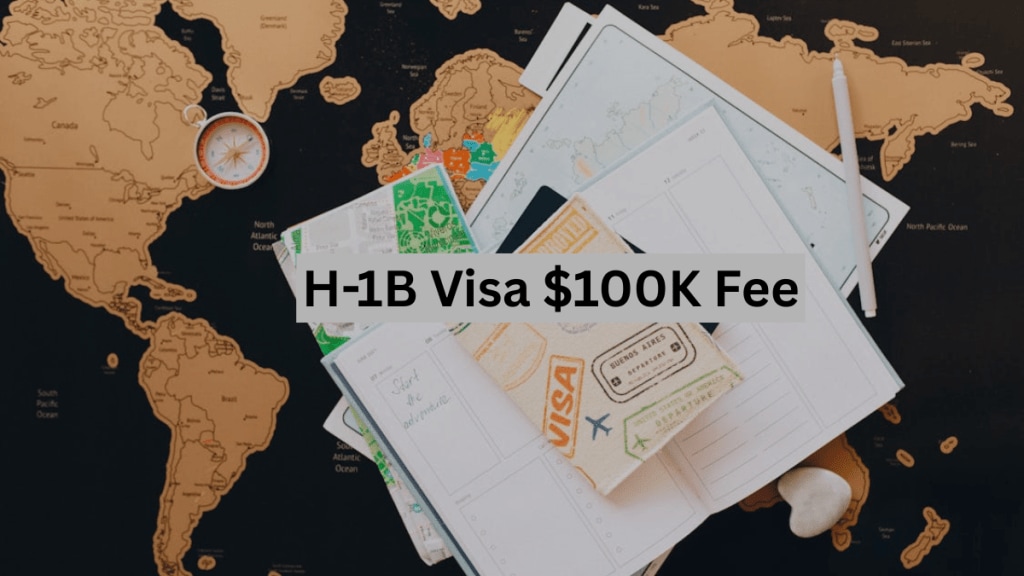H-1B visa fee: It is all about the H-1B visa today, after Trump signed the “Restriction on entry of certain non-immigrant workers” proclamation. While many have been Googling “H-1B visas”, tech workers and current H-1B holders are in a state of panic and have been reading the presidential order for answers, again and again. Even those who haven’t applied yet, or are anxiously waiting for their visa stamps, are feeling the pressure. As for media outlets, they are dissecting the order, word for word, and debunking rumours on social media. But a question that has confused many still remains unanswered: Who really needs to worry, and is there a $100,000 entry fee?
Well, to answer it all, we went through the official order and simplified it for you.
H-1B visa: Do you have to pay $100,000 entry fee?
One question that most people have on their minds right now, especially after reading through the misleading social media posts, is whether they have to pay a $100,000 entry fee.
You don’t have to pay anything to enter the United States. The $100,000 fee applies only to new H-1B petitions or visa renewals, and even then, it’s not your burden. Your employer is responsible for covering this hefty cost as part of the application process.
“Employers shall, prior to filing an H-1B petition on behalf of an alien outside the United States, obtain and retain documentation showing that the payment described in section 1 of this proclamation has been made,” Section 2 (a) of the order states.
H-1B visa: Restriction on entry
The order states that “entry into the United States of aliens as nonimmigrants to perform services in a speciality occupation” is restricted unless your employer has paid the $100,000 fee.
“Deny entry to the United States to any H-1B nonimmigrant for whom the prospective employer has not made the payment described in section 1 of this proclamation,” Section 2 (c) stated.
However, there are exceptions.
Section (c) of the same clarifies that the restrictions will NOT “apply” to individuals working for companies or industries deemed in the national interest and posing no security threat. In other words, not every H-1B application is affected; some workers are fully exempt.
“The restriction imposed pursuant to subsections (a) and (b) of this section shall not apply to any individual alien, all aliens working for a company, or all aliens working in an industry, if the Secretary of Homeland Security determines, in the Secretary’s discretion, that the hiring of such aliens to be employed as H-1B specialty occupation workers is in the national interest and does not pose a threat to the security or welfare of the United States,” the order stated.
The restrictions are set to last for 12 months starting September 21. Those entering the United States after the set deadline, September 21, will face restrictions, per the order.
H-1B visa proclamation: Prioritise top talent
The proclamation, signed on September 19 by Trump, is intended to prioritise the entry of “high-skilled and high-paid” individuals into the United States.
“The Secretary of Labour shall initiate a rulemaking to revise the prevailing wage levels to levels consistent with the policy goals of this proclamation, consistent with section 212(n) of the INA, 8 U.S.C. 1182(n),” Section 4 (a) of the order directed.
H-1B visa fee: What else should you know?
The new H-1B rules will not alter the status of H-1B holders. It will NOT revoke or cancel existing H-1B visas. Current H-1B holders are unaffected unless their employer submits a new petition for renewal. In that case, the visa will be subject to review after 12 months.
According to US Secretary of Commerce Howard Lutnick, the new H-1B fee would be paid annually for six years. However, the proclamation itself doesn’t specify this timeframe; it only states that the policy will be reviewed after 12 months. In addition, the fee is permanent, meaning it remains in effect until officially changed.
The administration plans to assess the impact after the next H-1B lottery to decide whether restrictions should continue.
“…a recommendation on whether an extension or renewal of the restriction on entry pursuant to section 1 of this proclamation is in the interests of the United States,” the order called for a joint recommendation by the Secretary of State, the Attorney General, the Secretary of Labour, and the Secretary of Homeland Security.
The order also addresses the misuse of other visa types – backdoor hirings on business or tourist visas. “Secretary of State will issue new guidance to consulates and embassies, making sure B visas aren’t being misused by workers who already have approved H-1B petitions (with start dates before October 1, 2026).”
